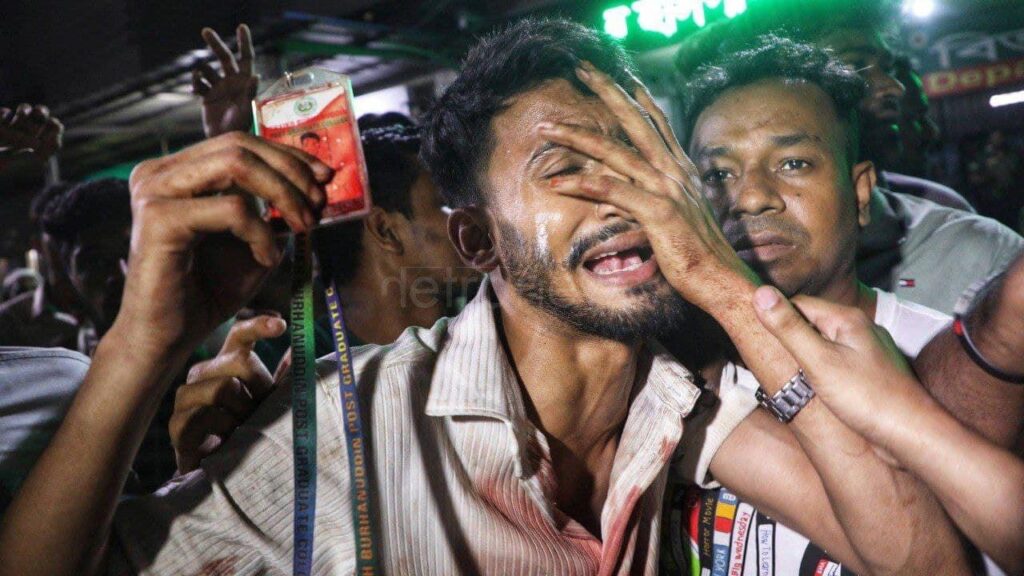

Bangladesh has been rocked by a series of protests that have left the nation mourning. The heart-wrenching loss of lives, particularly among students and young children, has sent shockwaves through communities and raised urgent questions about the state of humanity in our world today. For those who were not directly affected, the silence that followed the protests felt deafening—a nation united in grief, yet isolated by an intentional blackout of communication.

The protests erupted as students took to the streets, demanding better educational opportunities, safer environments, and a future free from corruption and injustice. They were not merely fighting for their rights; they were standing up for their dreams, aspirations, and the promise of a better tomorrow. Yet, in a tragic turn of events, what began as a peaceful demonstration devolved into chaos. Reports emerged of violent clashes between protesters and security forces, resulting in the loss of numerous young lives.

As the protests escalated, the government responded not only with force but also with a complete shutdown of the internet. This move, ostensibly aimed at controlling the narrative and preventing the spread of “disinformation,” had dire consequences. Families were cut off from one another, and the world outside Bangladesh was left in the dark about the scale of the tragedy unfolding within. In an age where information is power, this blackout served to deepen the isolation felt by those already in mourning.

The human cost of these protests is staggering. Countless mothers are now grieving the loss of their children, daughters and sons who dared to dream of a better future. The streets of Dhaka and other cities are filled with memorials, as communities come together to honor the lives lost in this struggle. Each candle lit in remembrance is a testament to the innocence stolen by violence, and each tear shed is a reminder of the fragility of life.
In the midst of this sorrow, one cannot help but ask: Where is humanity? Where is the compassion, the empathy, the understanding that should bind us together in times of crisis? The international community has largely remained silent, with only a few voices calling for accountability and justice. The indifference displayed by those in power, both within Bangladesh and beyond, is a chilling reminder of how easily the voices of the vulnerable can be silenced.

The students who protested were not just fighting for themselves; they were standing up for the rights of future generations. They were demanding a society where children can learn without fear, where mothers can send their children to school without worry, and where dreams can flourish rather than be extinguished.
As we reflect on this tragic chapter in Bangladesh’s history, we must remember that the fight for justice and humanity does not end with the protests. It is a call to action for all of us—to stand in solidarity with those who are suffering, to amplify their voices, and to ensure that such tragedies never happen again.
The world must not turn a blind eye. We must demand accountability, advocate for the rights of the oppressed, and work towards a future where every person, regardless of their age, background, or beliefs, is treated with dignity and respect.
In the face of this darkness, let us be the light. Let us not only ask, “Where is humanity?” but also strive to answer that question by embodying the very compassion and solidarity we seek. The time for action is now. For the students, for the mothers, for the future of Bangladesh—let us stand together.
